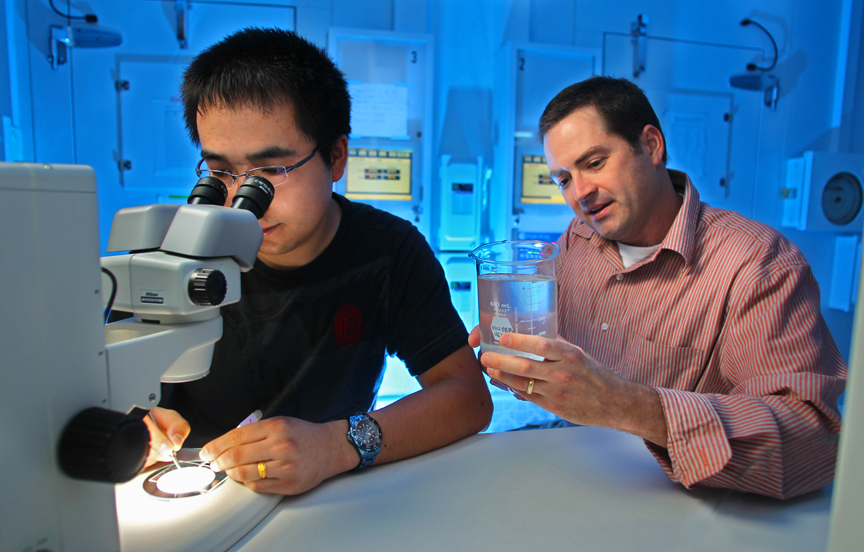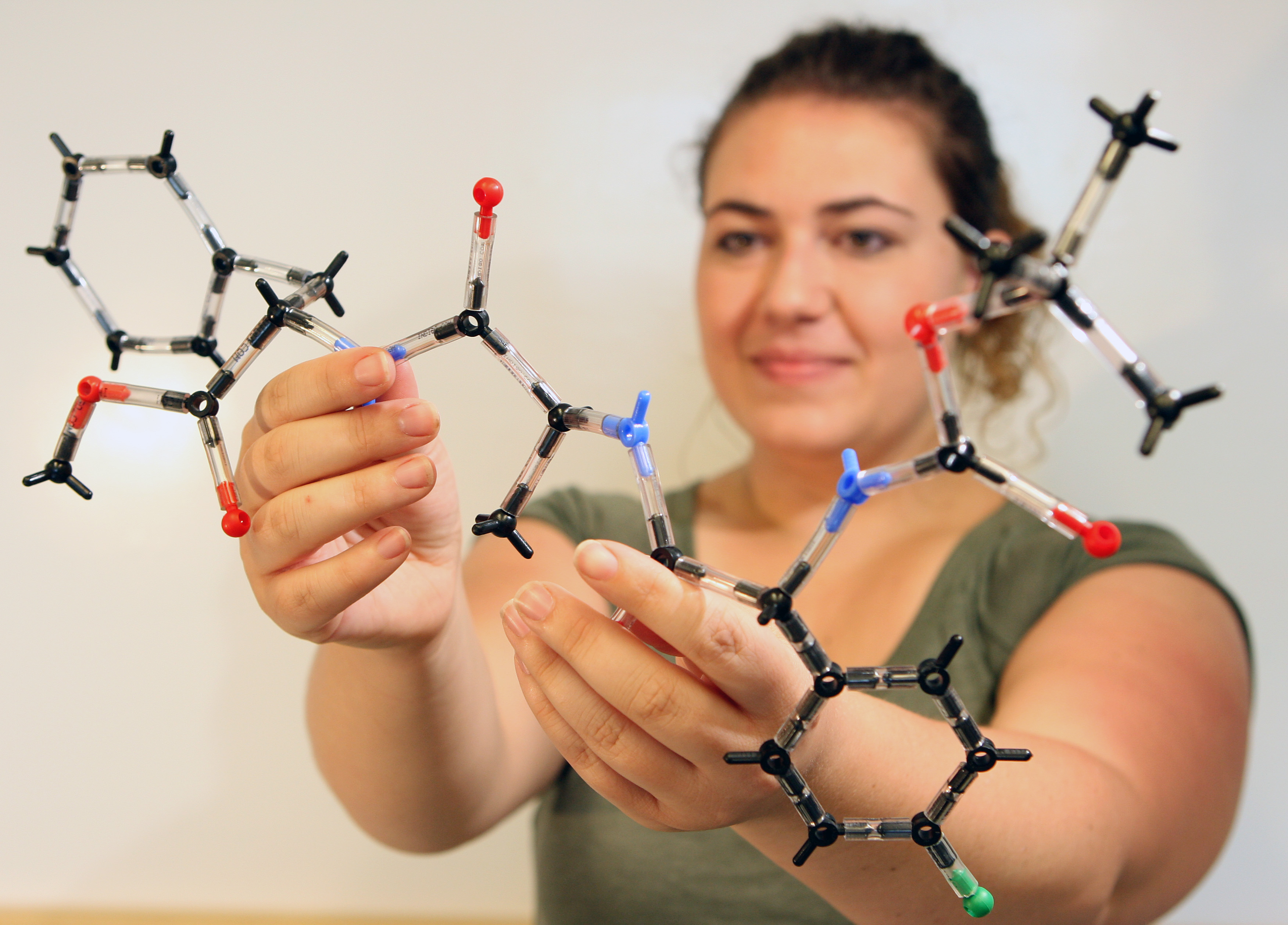David Salisbury
-

Newly discovered DNA repair mechanism
Brandt Eichman and Emily Rubinson Tucked within its double-helix structure, DNA contains the chemical blueprint that guides all the processes that take place within the cell and are essential for life. Therefore, repairing damage and maintaining the integrity of its DNA is one of the cell’s highest priorities. Researchers… Read MoreOct 4, 2010
-

Vanderbilt plays key role in $20 million federal grant designed to strengthen Tennessee’s R&D infrastructure
Five years from now, high school and college students throughout Tennessee should have more and better opportunities to learn about and pursue careers in alternative energy science and technology. Read MoreSep 9, 2010
-

Mosquitoes use several different kinds of odor sensors to track human prey
Graduate students Chao Liu and R. Jason Pitts Origin of DEET’s repellent effect confirmed It now appears that the malaria mosquito needs more than one family of odor sensors to sniff out its human prey. That is the implication of new research into the mosquito’s sense of smell published… Read MoreAug 31, 2010
-

New graphics processor cluster gives Vanderbilt supercomputer a major boost
What do an astrophysicist studying how black holes merge, a chemist predicting the biological characteristics of novel proteins, a psychologist investigating decision-making and a mechanical engineer studying how nanotubes transport heat have in common? They all need tremendous amounts of computer power to conduct their research and they… Read MoreJul 29, 2010
-

MEDIA ADVISORY: Gifted high school students learn about the power of the extremely small in Vanderbilt summer camp
Eighteen gifted and talented high school students are spending the week on the Vanderbilt campus learning how nanoscience – the science of the very small – is impacting everything from the formulation of concrete to drug delivery systems. The nanoscience camp is one of a number of different camps being… Read MoreJun 29, 2010
-

Novel method of peptide synthesis promises to lower cost, increase availability of new drugs based on natural compounds
Graduate student Dawn Makley holds a model of a peptide molecule created using a new synthesis method developed in the laboratory of Prof. Jeff Johnston. Photo credit: Steve Green A team of Vanderbilt chemists has developed a novel method for chemically synthesizing peptides that promises to lower… Read MoreJun 23, 2010
-

Nanosponge drug delivery system more effective than direct injection
When loaded with an anticancer drug, a delivery system based on a novel material called nanosponge is three to five times more effective at reducing tumor growth than direct injection. Read MoreJun 1, 2010
-

Vanderbilt professor offers key factors in recruiting minorities, women to critical science, engineering careers
Identification of students with unrealized potential, continuous tracking of individual performance and intensive, one-on-one mentoring are key factors in successfully recruiting underrepresented minorities and women into the critical professions of science, technology, engineering and mathematics (STEM). Read MoreMar 16, 2010